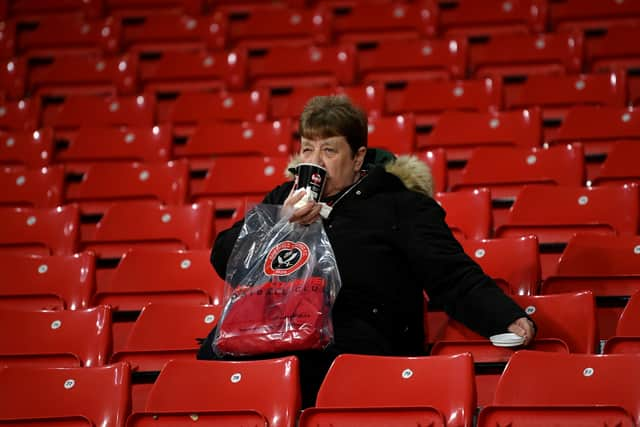How midweek ties devalue the FA Cup amid English domestic competition revival
and live on Freeview channel 276
Picture this: it’s a Tuesday night, the floodlights illuminate the night sky as fans close in on the stadium with anticipation of what lies ahead.
There is a growing hum emanating into the night air as the ground begins to fill, with the echoing of the stadium PA intertwining with the hiss of the onions cooking on the burger stand grill outside the ground. You make your way into the ground, your excitement builds as you climb the steps and more of the stadium comes into sight through the narrow focus of where the concourse merges into the seat section.
Advertisement
Hide AdAdvertisement
Hide AdJust as you reach the top of the steps, the announcer booms: ‘Welcome to this evening’s FA Cup clash between’...(insert sound of record screaching to a halt).
FA Cup? Midweek? And it’s not a replay?
Any fan knows that the Carabao Cup already steps on the sanctity of midweek football, particularly for clubs outside of the Premier League, and we now have the FA Cup being played at a - quite frankly - weird time of the week.
Not only were midweek games made for league fixtures and for those hardy all-weather fans, but FA Cup games were created for sunny Saturdays and - at a push - Sundays. Financial realities have meant the odd FA Cup game has had to be played on a Friday night or a Monday for the sake of television, and we can accept that. Likewise, replays can only be played midweek, and nobody minds that - it’s almost like a punishment for the clubs who couldn’t work out a winner in 90 minutes.
But to play the initial, box office FA Cup ties midweek feels wrong on every level. As football fans, we like familiarity, the routine of going to the football on certain days, and again, that’s more true for EFL and National League fans than it is of Premier League fans. Clubs below the top tier often go to two games a week, while televised games are far less frequent, meaning that for the most part, games consistently kick off at 3pm and 7.45pm.
Advertisement
Hide AdAdvertisement
Hide AdFor EFL fans, apart from the early-season Carabao Cup clash, midweek games are reserved for the less-than-glamorous league games, while the FA Cup has its rightful pride of place set aside for the weekend. Apparently not this week, with the FA squeezing the FA Cup in between league games like some sort of bothersome afterthought. It completely devalues the competition, at a time where the domestic cup competitions have been enjoying somewhat of a revival.


The reason? The World Cup will be blamed, no doubt, as Covid was last season, and the season before that. And to an extent, this is fair enough - after all, the relentless run of fixtures has to be accomodated somehow. But if the FA want its biggest competition to continue to hold weight, it must wield its power over the Premier League and EFL. The FA Cup is a weekend event, and there is no good reason why the FA couldn’t have stuck to their guns.
The FA should be scheduling FA Cup games for weekends and telling the leagues it’s up to them to find solutions for the postponed games. It shouldn’t be the other way around, and historically it hasn’t been. Across Tuesday and Wednesday, Grimsby Town, Blackburn Rovers, Sheffield United, Bristol City, Burnley and Fleetwood Town will all be looking to cause historic upsets, now just one win from the quarter-finals and two away from Wembley.
They will do so during under-the-radar midweek fixtures, with undoubtedly less travelling support than there would have been had the game been played on a weekend. These fan pilgrimages for the cup are a beloved part of the football fan experience, and it’s disheartening to see the tradition under threat.
Advertisement
Hide AdAdvertisement
Hide AdThis is the all-historic, all-magical FA Cup, after all. If the FA Cup wants to have influence and maintain its reputation, if it wants top clubs to take it seriously, it must first take itself seriously, even when it comes to scheduling issues. That’s down to the FA.
Comment Guidelines
National World encourages reader discussion on our stories. User feedback, insights and back-and-forth exchanges add a rich layer of context to reporting. Please review our Community Guidelines before commenting.
